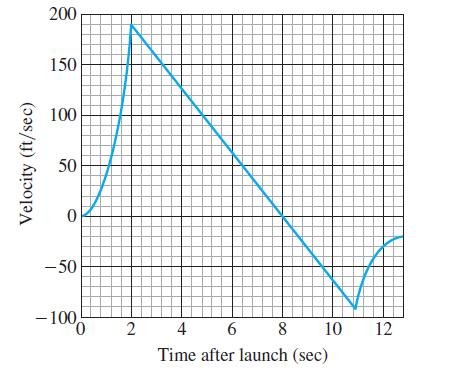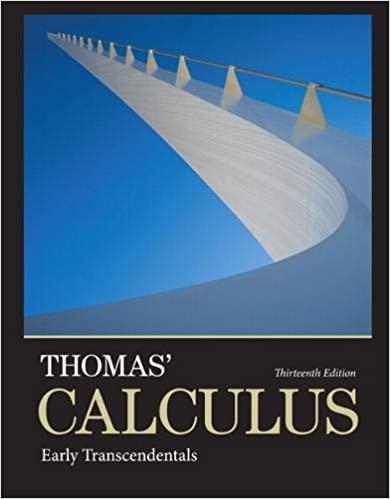When a model rocket is launched, the propellant burns for a few seconds, accelerating the rocket upward.
Question:
When a model rocket is launched, the propellant burns for a few seconds, accelerating the rocket upward. After burnout, the rocket coasts upward for a while and then begins to fall. A small explosive charge pops out a parachute shortly after the rocket starts down. The parachute slows the rocket to keep it from breaking when it lands. The figure here shows velocity data from the flight of the model rocket. Use the data to answer the following.
a. How fast was the rocket climbing when the engine stopped?
b. For how many seconds did the engine burn?
c. When did the rocket reach its highest point? What was its velocity then?
d. When did the parachute pop out? How fast was the rocket falling then?
e. How long did the rocket fall before the parachute opened?
f. When was the rocket’s acceleration greatest?
g. When was the acceleration constant? What was its value then (to the nearest integer)?
Step by Step Answer:

Thomas Calculus Early Transcendentals
ISBN: 9780321884077
13th Edition
Authors: Joel R Hass, Christopher E Heil, Maurice D Weir





